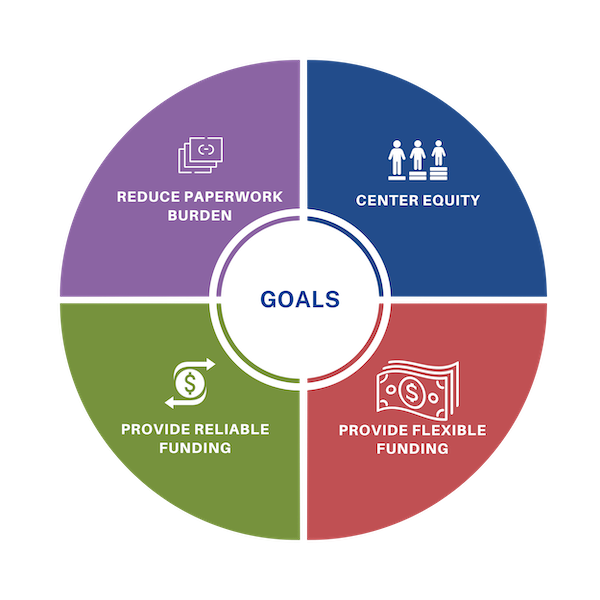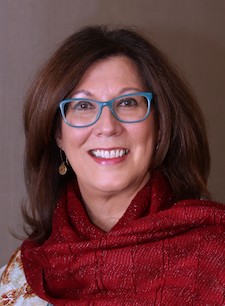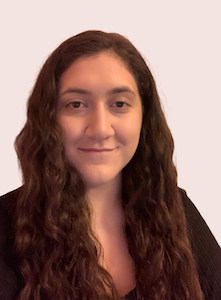Site Search
- resource provided by the Forum Network Knowledgebase.
Search Tip: Search with " " to find exact matches.
CNJG affinity and interest groups provide a valued forum through which New Jersey grantmakers can connect, exchange information, and learn from experts in a wide range of fields and sectors. Members with a focus on a particular geography or issue meet on a regular basis and are self-organized. For additional information or to discuss forming a new group, contact Chanika Svetvilas.
Camden Funders Affinity Group
Camden Funders Affinity Group provides a valued forum for grantmakers working in Camden to connect and exchange information and to hear from stakeholders working in benefit of Camden.
Culture Funders Affinity Group
The Culture Funders Affinity Group includes private and public grantmakers working in the arts and humanities across New Jersey. It aims to maximize the leadership potential and grantmaking abilities of those interested in developing a strong and thriving arts community in New Jersey.
Emerging Leaders in Philanthropy Affinity Group
The Emerging Leaders in Philanthropy Affinity Group’s mission is to nurture, develop and support professionals in the philanthropic sector across all departments/roles within foundations. Programming for the Emerging Leaders group is geared towards early and mid-career professionals and will serve as: a professional learning community for emerging professionals working in diverse positions; an opportunity for professional development and individual capacity-building that will lead to institutional change within the member organizations; and as a critical partner in the creation of a pipeline into senior/executive leadership in NJ philanthropy.
Environmental Grantmakers Affinity Group
The Environmental Grantmakers Affinity Group formed in 2007 to provide a network and sounding board for environmental grantmakers who share an interest in: (1) insuring a healthy environment for all residents of the Garden State; (2) preserving, restoring and regenerating natural resources, including air, water, land, energy resources, as well as native flora and fauna; and (3) encouraging solution-based responses to resource challenges, wiser use of resources, and sustainable practices at individual, public agency small business and corporate levels.
Finance & Investment Affinity Group
The Finance & Investment Affinity Group brings together grantmakers of all types and sizes to discuss financial market trends and to exchange strategies to help ensure the greatest endowment growth. At each meeting, the latest market performance reports and commentaries are also discussed.
Funders for NJ Education Affinity Group
The Funders for NJ Education Affinity Group connects those making grants in support of education and provides interested members with insights into current initiatives, research findings, and best practices. Past topics of discussion have included analyses of school funding, innovative educational programming, measuring teacher effectiveness and youth development programs and have included roundtable discussions of emerging trends and key issues.
Funders for Strong and Thriving Communities Affinity Group
The Funders for Strong and Thriving Communities Affinity Group is an intrastate, inter-disciplinary network of public and private investors interested in enhancing the quality-of-life of the residents that live within New Jersey communities, through place-based investment or philanthropy. The group aims to draw upon and leverage the knowledge of public and private sector experts in the field of community development; including affordable housing, economic development, job creation, neighborhood building, and services to children and families.
Health Funders Affinity Group
The Health Funders Affinity Group is a collaborative network of grantmakers dedicated to advancing a holistic and intersectional view of health across New Jersey. This group provides a platform to exchange grantmaking strategies, funding priorities, best practices, and valuable insights while fostering collaboration to address health-related challenges and opportunities across diverse populations and life stages.
New Jersey Corporate Philanthropy Network Affinity Group
The New Jersey Corporate Philanthropy Network Affinity Group convenes corporate funders whose giving footprint includes New Jersey. Meetings cover such topics as current and emerging trends in strategic philanthropy, the business case for Corporate Social Responsibility, marketing/branding, sponsorships, employee matching gifts, employee engagement/volunteerism, and more. Best practices are shared and opportunities for collaboration are offered. A traditional Round Robin, where current burning issues/questions are discussed closes out the meetings. We hope you will join us at an upcoming event.
Newark Funders Affinity Group
The Newark Funders Affinity Group began in 2010 as a result of the convening work of CNJG’s Newark Philanthropic Liaison. As of May 20th, 2025, the Newark Education Funder Affinity Group merged with the Newark Funders Affinity Group to ensure alignment and coordination among funders dedicated to the city. The group meets quarterly hearing from elected officials, senior government and educational leaders, members of the nonprofit community, and local civic stewards to better understand Newark's emerging needs and opportunities, all with the goal of leveraging grantmaking for greater impact.
Paterson Funders Affinity Group
The Paterson Funders Affinity Group helps facilitate awareness of work by nonprofits and funders in Paterson, foster collaboration, and improve the lives of Paterson residents. Past meetings have focused on information regarding funder projects in the city, including some new grants made and lessons learned on ongoing projects in the areas of education, health and nutrition, arts and culture, and civics.
Trenton Area & Mercer County Funders Affinity Group
The Trenton Area & Mercer County Funders Affinity Group’s goal is to explore the most pressing needs and issues in the Trenton and Mercer County region and to uncover ways to leverage resources and develop solutions to this community’s greatest concerns. Past meetings have included roundtable discussions on the unique needs of the Trenton area and guest speakers that highlighted the dynamic interrelationship between the City of Trenton and the State of New Jersey.
CNJG’s 2024 Affinity Group co-chairs (name/affinity group):
Front row: Sharnita Johnson/Culture Funders; Leslie Walker/Camden Funders; Bill Leavens/Environmental Grantmakers; Julia Stoumbos/Paterson Funders; Chanika Svetvilas/CNJG’s Manager of Programs and Learning
Back rows: Theresa Jacks/CNJG’s President and CEO; Kevin Callaghan/CNJG’s Newark Philanthropic Liaison; Shakirat Odunsi/CNJG’s Manager of Communications; Julie Holland/Paterson Funders; Katherine Nunnally/Trenton Area and Mercer County Funders; Jasmyne Beckford/Newark Funders; Monica Hall/Emerging Leaders; Erik Estrada/Camden Funders; Jessica Nugent/Health & Aging Funders; Sharif Braxton/Health & Aging Funders; Liz Crowley/Environmental Grantmakers
Not pictured: Tammy Herman/Culture Funders; Alana Vega/Emerging Leaders; Rich Riberio/Finance & Investment; Paul Stierhoff/Finance & Investment; Jessica McKenzie/Newark Education Funders; Pat Hartpence/NJ Corporate Philanthropy Network; Etta Denk/NJ Corporate Philanthropy Network; Kortney Swanson Davis/ Education Funders; Melissa Litwin/Education Funders
Current Vacancies (as of 4/2024): Trenton & Mercer County Funders (1); Strong & Thriving Communities Funders (2); Newark Funders (2)

Deepening Philanthropic and Nonprofit Partnerships in New Jersey
Doing Good Better, a partnership of the Council for New Jersey Grantmakers and the New Jersey Center for Nonprofits, is a community of funders and nonprofits taking action against the power imbalances and racial inequities in philanthropy, nonprofits and government. Accessible, equitable, and mutually accountable relationships are primary and indisputable building blocks for a stronger society and thriving communities. Our goal is to shift the culture of the New Jersey philanthropic and nonprofit ecosystem by encouraging funders, nonprofits, and government to create shared power rooted in collaboration, mutual trust, and respect.
Doing Good Better Goals: A Framework for Change
The Doing Good Better Steering Committee encourages funders to focus on and advocate for four changes that can make an immediate difference in addressing power dynamics between nonprofits and funders and maximizing nonprofit impact.
Why now?
For many years, but particularly in the context of the COVID-19 pandemic, natural disasters, and the heightened outcry for racial equity and social justice, funders have been urged to embrace more flexibility and transparency in their grantmaking. Practices such as general operating support, simplified application and reporting procedures, multi-year funding and others have been shown to level the power imbalance, advance greater equity, strengthen partnerships between funders and their nonprofit partners, and thereby improve community impact.
Many grantmakers temporarily embraced flexible practices in the wake of Superstorm Sandy and during the height of the pandemic, and these structural changes empowered nonprofits to become more resilient and have a greater impact in their communities. But while some funders have retained the flexible practices, others have reinstated previous restrictions.
In New Jersey and across the country, there is a renewed urgency to NOT return to business as usual. It’s long past time.
Doing Good Better invites all of us to reflect on how power is distributed in our partnerships, learn from our peers, and make adjustments that position all community partners for transformative, equitable change in New Jersey.
How?
Guided and informed by 50+ advisors from New Jersey who represent a broad range of perspectives from nonprofits, philanthropy, and beyond, we are approaching this work through the lens of systems change – the recognition that transformative change can only occur after power structures have been addressed collectively. Specifically, Doing Good Better encourages funders to consider the power dynamics that underpin their policies, practices, and resource flows. To do this, we provide resources and a space for dialogue centered on changes in key practices and culture shifts.
Quick practice changes you can make now.
The road to systems change begins with changing practices that impede nonprofits’ pursuit of their missions, and implement practices that demonstrate respect for and trust in the expertise and experience of nonprofits and the communities they serve. Several key practices have consistently been shown to be particularly effective. Many of these have been requested by nonprofits for quite some time, and are reflected in the principles of Trust-Based Philanthropy and Community-Centric Fundraising, among others. Here are a few practice changes you can make now:
Type of Funding
● Give multiyear and unrestricted funding, especially for grantee partners with which you’ve had long term relationships.
Access to Funding
● Create alternative processes for organizations too small to submit audits to reduce barriers to obtaining grants.
● Set aside funding pools for BIPOC-led organizations that may not have access to traditional funding sources.
Simplifying the Process
● Simplify and streamline application and reporting processes.
● Eliminate annual requests for organizational information that does not change from year to year.
Learning
● Engage with the community through participatory grantmaking that aligns with the community’s goals.
● Open dialogues with nonprofits by soliciting and acting on feedback
How do we know?
We’ve asked the experts: nonprofits, foundations, and community members who are working directly in our community as well as peers from across the country who are eliminating power imbalances in their own communities.
● Feedback from over 50+ Advisors
● The Council of New Jersey Grantmakers survey
● The Center for New Jersey Nonprofit’s survey
● The Trust Based Philanthropy Project
● The Community-Centric Fundraising movement
● Thought leaders and advocates throughout the nonprofit community
● Case studies from across the US
Theresa Jacks, President and CEO
Contact Theresa E. Jacks / (609) 414-7110 x805
Theresa Jacks joined the Council of New Jersey Grantmakers in 2008. A creative, versatile leader with over 25 years’ experience in government, nonprofit, and philanthropic sectors, she was appointed President and CEO in December 2022.As President and CEO, and previously Deputy Director and Manager of Advancement & Special Initiatives at the Council of New Jersey Grantmakers, Theresa has been instrumental in strengthening CNJG's leadership work, leading policy and advocacy efforts, building relationships with partners, developing and increasing funding to support operations and special projects, providing learning opportunities, and enhancing capacity and management processes. She has a deep knowledge of best practices in grantmaking.
Prior to joining the Council, Theresa served as Executive Director of the Whitesbog Preservation Trust, a nonprofit organization dedicated to restoring a 19th century historic village. Leading the operations of both the Trust and the ongoing restoration of the historic village included working closely with the Board of Trustees, effectively guiding board and committee initiatives, developing and coordinating educational and recreational programs, fundraising, member relations, ensuring long-term strategic and day-to-day management and administration of the organization, and building partnerships with the community.
Prior to launching a career in the nonprofit sector, Theresa worked in New Jersey state government for nearly twenty years in varying levels of management and leadership.
Theresa graduated from Central Michigan University with a Master of Science in Administration, and Rowan University with a Bachelor of Arts in Psychology. She graduated summa cum laude from both.
Kevin Callaghan, Newark Philanthropic Liaison
Contact Kevin Callaghan / (609) 414-7110 x804
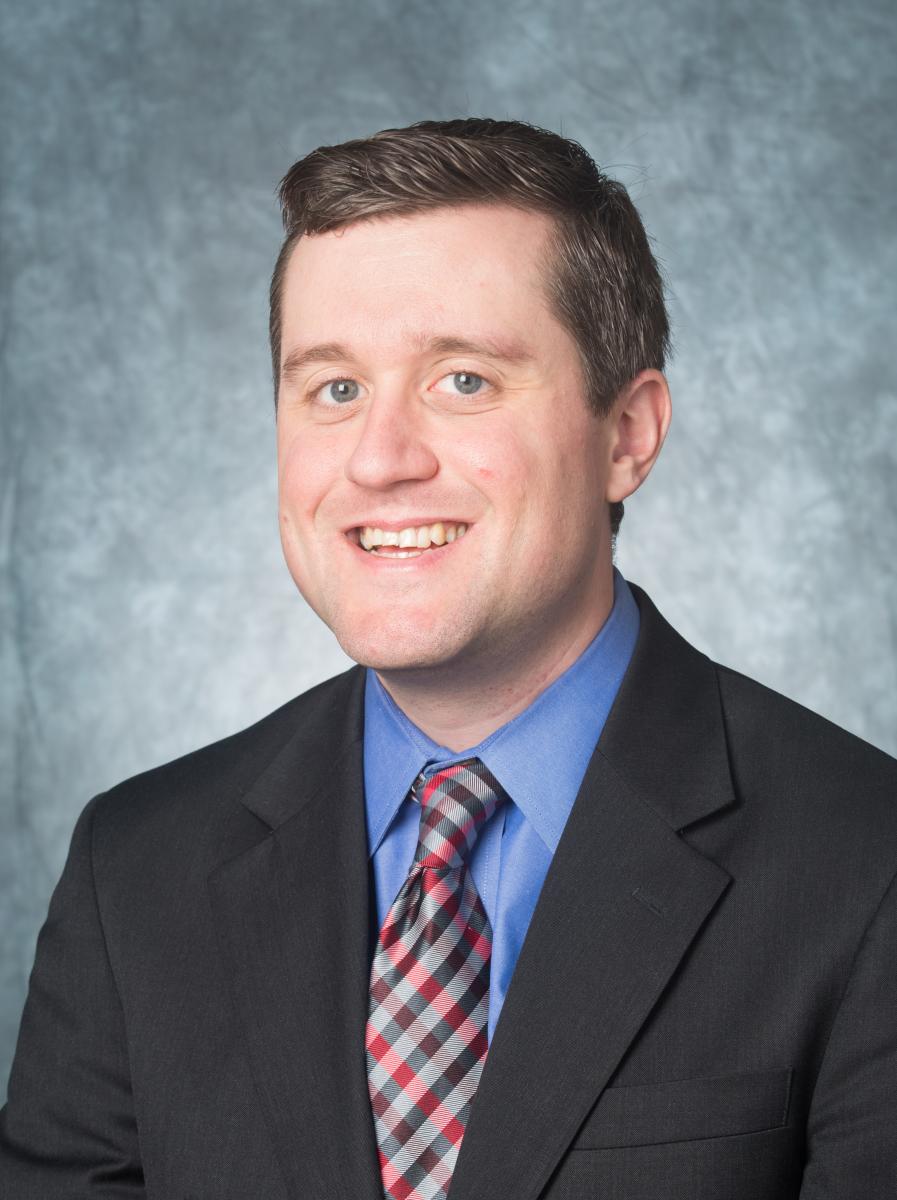
The Office of the Newark Philanthropic Liaison is an innovative collaboration between the Council of New Jersey Grantmakers and the City of Newark. Kevin began serving as the Newark Philanthropic Liaison on September 1, 2016.
In the role of Newark Philanthropic Liaison, a cabinet-level position, Kevin works directly with the Mayor and his senior cabinet to leverage private and government assets to support the Administration’s agenda in areas such as public safety, summer youth employment, workforce development, economic development, health and wellness, education and literacy, arts and culture, and neighborhood and place-based initiatives. The Office of the Newark Philanthropic Liaison also convenes and connects Newark and regional funding partners, Newark community-based organizations, and other key stakeholders by providing thought leadership, facilitating content and affinity groups, and raising awareness about critical issues facing the city.
Immediately prior to serving as the Newark Philanthropic Liaison, Callaghan was a Project Lead on the City’s Summer Youth Employment Program where he worked to implement system and program enhancements to one of the Mayor’s signature programs. Before this short-term appointment, he served for nearly five years as the Program Officer at the Foundation for Newark’s Future (FNF), the local arm of national philanthropic funding donated to the City of Newark to improve education opportunities for youth. Prior to joining the Foundation for Newark’s Future, Kevin worked for the federal government as a Special Assistant at the Overseas Private Investment Corporation in Washington D.C. and was a classroom teacher of middle school Social Studies in Philadelphia.
Callaghan holds a Bachelor’s Degree in Political Science and History from St. Peter’s University in Jersey City and a Master’s Degree in Urban Education from the University of Pennsylvania. Born and raised in New Jersey, Kevin is a proud resident of Newark.
Fortunata Cuomo, Development Associate
Contact Fortunata Cuomo / (609) 414-7110 x807
Fortunata Cuomo joined the Council of New Jersey Grantmakers in November 2024. A dedicated professional with a strong background in development, fundraising, and advocacy. Her education and previous work experiences have empowered her and allowed her to realize her passion for philanthropy.
She graduated from Fairleigh Dickinson University in Teaneck, New Jersey, in 2020, where she majored in History and minored in Global and Cultural Studies. During her time at university, she gained practical experience through internships at international organizations such as UNICEF USA and the United Nations Office for Partnerships. These early experiences helped shape her passion for justice and equality.
After completing her degree, Fortunata transitioned into the nonprofit sector, where she has been deeply involved in initiatives focused on empowerment, justice, and advocacy. She has worked with various organizations that aim to create positive change, providing strategic support and operational expertise to projects that empower communities.
Currently, Fortunata serves as the Development Associate at the Council of New Jersey Grantmakers, where she plays a pivotal role in supporting the organization’s partnership-building efforts and fundraising initiatives. She collaborates with stakeholders and partners to actualize common objectives and goals.
Outside of her professional life, Fortunata is an avid reader, traveler, and writer. Her love of learning extends beyond the workplace, as she seeks to broaden her perspective through literature and exploring new cultures.
Shakirat Odunsi, Manager of Communications
Contact Shakirat Odunsi / (609) 414-7110 x806
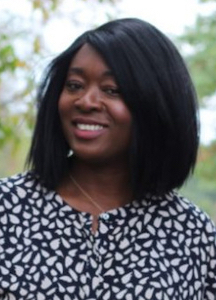
Shakirat Odunsi  joined the Council of New Jersey Grantmakers in February 2024 as the Manager of Communications. With over 20 years of B2B and B2C marketing experience, Shakirat will lead all aspects of the organization's digital communications strategy. She will promote the CNJG brand, its events, programs, and campaigns through innovative digital platforms and interactive communications. Shakirat will oversee CNJG's online presence, manage its website and social media channels, and lead the marketing efforts for CNJG's diverse services and offerings.
joined the Council of New Jersey Grantmakers in February 2024 as the Manager of Communications. With over 20 years of B2B and B2C marketing experience, Shakirat will lead all aspects of the organization's digital communications strategy. She will promote the CNJG brand, its events, programs, and campaigns through innovative digital platforms and interactive communications. Shakirat will oversee CNJG's online presence, manage its website and social media channels, and lead the marketing efforts for CNJG's diverse services and offerings.
Shakirat has a wealth of experience in the marketing and communications field, having worked on successful client-based projects in the past. She has collaborated with major brands, further enriching her marketing and strategic planning expertise. Shakirat's exposure to diverse industries and high-profile collaborations has honed her ability to navigate complex marketing landscapes and foster partnerships that drive success. She is excited to use her extensive background in marketing and communications to make a meaningful impact in the philanthropic sector. Shakirat has a track record of creative campaign execution and team leadership. She is deeply committed to volunteerism and is eager to apply her skills to promoting social good and community development.
Shakirat holds a Bachelor of Science degree from Rutgers, The State University of New Jersey.
Dana Schwartz, Office Manager
Contact Dana Schwartz / (609) 414-7110 x801
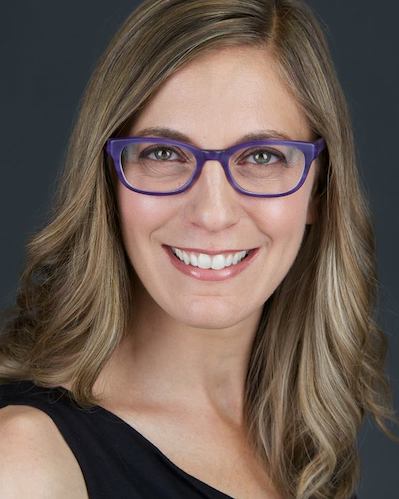
Dana Schwartz joined the Council of New Jersey Grantmakers in 2022. As office manager, her role is assisting the CEO with day-to-day operations, and attending to the needs of the CNJG Team, members, nonprofit partners, and others. She will also assist with program coordination and logistics, including for Signature events.
A lifelong reader and writer, Dana always knew she’d be an English major, and for several years after graduating college worked in the book publishing industry in Manhattan. Not long after receiving her Master’s in Creative Writing from Fairleigh Dickinson University, Dana spent the next decade at home raising her two children, and reading to them as often as they’d allow.
Since moving to New Hope, Pennsylvania in 2014, she has worked in education both as a volunteer and professional. First as a Girl Scout leader, and more recently as an instructional assistant in a multiple disabilities classroom. She is currently fulfilling her second term as School Board Director for her local district, New Hope-Solebury. She is excited to be working in the nonprofit sector in New Jersey, the state where she was born and raised.
Chanika Svetvilas, Manager of Programs and Learning
Contact Chanika Svetvilas / (609) 414-7110 x803
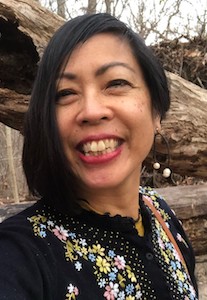
Chanika Svetvilas  ( [Chu-nē-kgha Swet-vē-las] (she/her/hers) joined the Council of New Jersey Grantmakers in 2023. As Manager of Programs and Learning, she organizes and manages programming for membership including signature events, affinity group gatherings, and educational programs that provide professional skill-building, issue-based knowledge development, as well as opportunities for networking.
( [Chu-nē-kgha Swet-vē-las] (she/her/hers) joined the Council of New Jersey Grantmakers in 2023. As Manager of Programs and Learning, she organizes and manages programming for membership including signature events, affinity group gatherings, and educational programs that provide professional skill-building, issue-based knowledge development, as well as opportunities for networking.
Prior to CNJG, Chanika worked in the nonprofit sector as a program coordinator for community based organizations as well as larger institutions and in higher education. She served as the Conference Manager for the International Sculpture Center, Program Coordinator for for the Charles B. Wang Center at Stony Brook University, and Grants Assistant for the Arts for the Doris Duke Charitable Foundation. Additionally, she has served as a grant panelist for several art councils including the New York State Council on the Arts. She was the co-founder of ThaiLinks, a collective dedicated to issues affecting Thai communities and co-founder of the Thai Takes film festival, its signature program presented in New York City.
Chanika is a practicing artist and curator. She holds a BS in Studio Art from Skidmore College, and an MFA in Interdisciplinary Arts from Goddard College. Chanika currently resides in Princeton Junction, NJ.
Craig Weinrich, Senior Director, Member Experience
Contact Craig Weinrich / (609) 414-7110 x802
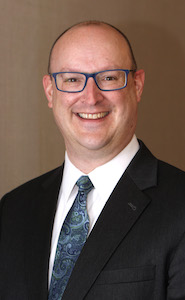
Craig Weinrich  joined the Council of New Jersey Grantmakers in 2014, as the Director of Member Services. Promoted to Senior Director, Member Experience in 2025, Craig oversees the recruitment and engagement with members, including communications and programs. During his tenure, Craig has also been CNJG’s Salesforce administrator, curated communications, developed and ran programs, researched, redesigned, and wrote the Philanthropy Benefits and Salary Survey, and maintained our website with our webmaster.
joined the Council of New Jersey Grantmakers in 2014, as the Director of Member Services. Promoted to Senior Director, Member Experience in 2025, Craig oversees the recruitment and engagement with members, including communications and programs. During his tenure, Craig has also been CNJG’s Salesforce administrator, curated communications, developed and ran programs, researched, redesigned, and wrote the Philanthropy Benefits and Salary Survey, and maintained our website with our webmaster.
Craig discovered the nonprofit sector through an intense desire to avoid working in the dining hall at Dickinson College by interning with the Eaken Piano Trio, where he learned about the world of arts administration. From there, he served as Development Directors for the Delaware Symphony (promoted from Development Assistant) and Springfield (MA) Symphony Orchestras, where he could even be found clad in the costume of their newly-created penguin mascot! Craig then moved to Nonprofit New York, a membership association of nonprofits in the New York City area, serving as their Membership, Outreach and IT Director for nine years. While there, he earned a nonprofit management certificate from Baruch College through the United Way Nonprofit Leadership Institute. Prior to joining CNJG, Craig served as the Membership Director for Maryland Nonprofits. At each organization, Craig has served as the “accidental techie.”
Craig is happy to be back in New Jersey for the third time. He grew up in Madison, lived in Bloomfield while working in NYC, and now resides in Hamilton. He served twice on church council at Living Waters Lutheran Church in Ringoes; graduated from Lead NJ in 2015 (go Green!); and in July 2018, married Kacy O’Brien. In 2022, he was appointed to serve on the Governor’s Council on Volunteerism and Community Service. In his spare time, he enjoys reading, playing board games, and hiking with Kacy and their dog, Clyde.
ADJUNCT STAFF
Mary Trimbach, Webmaster
Mary Trimbach joined CNJG as their Webmaster & Communications consultant in 2012, bringing 35 years of experience in the technology field to the position. In addition to managing the website and proving support to their communications work, Mary serves as liaison for CNJG to the Forum’s Knowledge Management Group.
Prior to joining CNJG, Mary worked in multiple sectors including non-profit, business and education providing her with a broad base of organizational knowledge. Her experience in the technology field ranges from programming, p.c. repair and support, and network management to her real love of system implementation and user training. In her career she has led in the start-up and support of several state and nationwide technology groups.
Mary holds a Bachelor’s degree in Information Technology from Aquinas College. A Michigan native, Mary and her husband recently had the opportunity to spend 2 years living their dream and taking telecommuting to a new level, working from their motorhome as they traveled the United States. Now settled back down in Michigan to be near their daughters, sons-in-law and three grandsons, they continue their travels as often as they can sneak away!
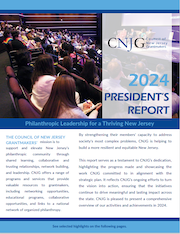
CNJG's President's Reports
This resource guide includes various virtual volunteer opportunities, additional resources, and best practices for corporate volunteer programs during the coronavirus pandemic.
This resource will be updated, as CNJG and corporate members collect new information and opportunities to share with colleagues.
A CNJG member queried our listserves on what online grants management system members use and would recommend for a small foundation. CNJG compiled these responses, and listed the different systems that members do use.
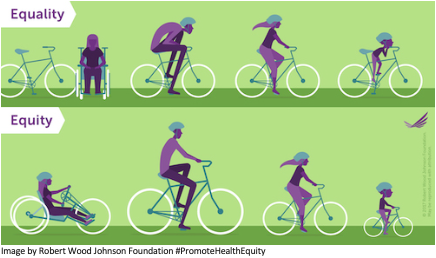
These articles are curated from news sources, philanthropic-focused publications, philanthropy serving organizations, and other places found on the internet. We encourage philanthropic organizations to read, share, and use the strategies suggested in these articles for your own diversity, equity, and inclusion learning journey. If there are others that you feel we should include, please contact us.
Chronicle of Philanthropy: Philanthropy Pours More Money Into Advancing Economic Wealth of Latinos (10/13/2022)
ABC News: Two New Jersey towns illustrate the race gap in the COVID pandemic (5/13/2022)
Chronicle of Philanthropy: General Operating Support Is Vital to Advancing Equity, Strengthening Nonprofits, Say Leaders (4/18/2022)
MacArthur Foundation: Movement to End Philanthropy’s Complicity in Anti-Blackness (4/18/2022)
Chronicle of Philanthropy: Nearly 500 Foundation Leaders Unite to Push for More Support of Asian Americans (3/26/2021)
Chronicle of Philanthropy: As Violence Against Asian Americans Intensifies, the Moment for Philanthropy to Act Is Now (3/17/2021)
Chronicle of Philanthropy: How One Family Foundation is Evolving to Refocus on Racial Equity (3/16/2021)
HealthDay.com: Many Adults Do Not See Link Between Racism, Poorer Health (1/27/2021)
Stanford Social Innovation Review: How to Begin Considering a Gender Lens Investing Strategy (12/10/2020)
Nonprofit Quarterly: How to Welcome Native Leaders to the Philanthropic Sector (12/3/20)
Chronicle of Philanthropy: Opinion Piece: Diversity Mandates from Foundations Maki It Harder for Nonprofits to Do Their Jobs Well (12/2/2020)
Chronicle of Philanthropy: Invest in and Strengthen People of Color: A Corporate Grant Maker Explains How (11/17/2020)
Nonprofit Quarterly: White House Declares Ban on Federal Racial Equity Trainings (9/14/20)
Nonprofit Quarterly: White Supremacy: Call It By Name (9/14/2020)
Denver Post: How Donors Can Advance Racial Equity (9/14/2020)
ROI-NJ: NJ to recognize Juneteenth as official state holiday (9/11/2020)
Chronicle of Philanthropy: The 'Warping Effects' of Philanthropy (8/25/2020)
Chronicle of Philanthropy: Companies Lead Philanthropic Response to Calls for Racial Justice, but Will It Last? (8/25/2020)
Exponent Philanthropy: Moving Towards Racial Equity in Philanthropy: Introducing an Anti-Racist Intersectional Frame (8/25/2020)
Inside Philanthropy: “A Moment of Reckoning.” How Can Funders Support an Equitable and Inclusive Arts Sector? (7/16/2020)
Generocity: Uprising in Philadelphia: A to-do list for the next six months (7/9/2020)
Boston Globe: The Problem is White Supremacy (6/29/2020)
Inside Philanthropy: Amid Demands for Change, Here’s How Philanthropy Can Back Underfunded Black-Led Group (6/18/2020)
Nonprofit Quarterly: This Moment Shows Us Why Philanthropy Should Reinvent Itself by Gislaine Ngounou, of the Nellie Mae Education Foundation (6/17/2020)
Chronicle of Philanthropy: Who Holds Philanthropy Accountable for Racial Justice? by Lisa Pilar Cowan, vice president of Robert Sterling Clark Foundation (6/16/2020)
Creative New Jersey: Summary and resources from their statewide conversation on Racial Justice (6/10/2020)
Chronicle of Philanthropy: 64 Black Foundation Leaders Tell Philanthropy to Go Big in Response to Pandemic and Police Killings (6/10/2020)
Stanford Social Innovation Review: Mass Decarceration, COVID-19, and Justice in America by Deanna Van Buren co-founder of Designing Justice + Designing Spaces and F. Javier Torres-Campos, Thriving Cultures Program Director at Surdna Foundation (6/9/2020)
Communications Network: Crowdsourced Anti-Racism Resources and Tools
NonprofitAF.com: Privilege, power, and personal conflicts: The forces preventing change in nonprofit and philanthropy by Vu Le (6/8/2020)
Philanthropy Network Greater Philadelphia: Articles and Resources from the webinar: The Crisis of White Supremacy in America: What’s Philanthropy’s Role (6/4/2020)
Chronicle of Philanthropy: Dismantling Racism Might Require Philanthropy to Dismantle Itself by Lisa Pilar Cowan, vice president of the Robert Sterling Clark Foundation (6/2/2020)
Chronicle of Philanthropy: Why All Grantmakers Should Seek to Fix Democracy by Suzette Brooks Masters, senior strategist at the Center for Inclusion and Belonging at the American Immigration Council (6/2/2020)
Southern Poverty Law Center: Authoritarian State or Inclusive Democracy? 21 Things We Can Do Right Now by Eric K. Ward, Senior Fellow (6/1/2020)
Nonprofit Quarterly: Dear Philanthropy: These Are the Fires of Anti-Black Racism by Will Cordery of Leverage Philanthropic Partners LLC & Astraea Lesbian Foundation for Justice (6/1/2020)
NonprofitAF.com: Have nonprofit and philanthropy become the "white moderate" that Dr. King warned us about? by Vu Le (6/1/2020)
Library Journal: Books on Anti-Racism (5/31/2020)
Stanford Social Innovation Review: Overcoming the Racial Bias in Philanthropic Funding by Cheryl Dorsey, Peter Kim, Cora Daniels, Lyell Sakaue, & Britt Savage (5/4/2020)
Stanford Social Innovation Review: For a More Equitable America, Understand Race and Racism as Actions We Do and Can Undo by MarYam Hamedani, Hazel Rose Markus & Jeanne Tsai (5/1/2020)
Jacobin Magazine: The Perils of Liberal Philanthropy by Karen Ferguson (11/2018)
Smithsonian Magazine: The 1968 Kerner Commisssion Got It Right, But Nobody Listened by Alice George (3/1/2018)
Continuum Chart on Becoming an Anti-Racist Multicultural Organization by Crossroads Ministry (2013)
The Characteristics of White Supremacy Culture from Dismantling Racism: A Workbook for Social Change Groups (2001)
Resource Generation: Guidance for Giving to Black-led Organizations for Black Liberation (undated)
Prison Policy Initiative: Prison Gerrymandering Project how the Census Bureau counts people in prison (undated)
A working glossary of terms to help shape a common language for work in Community Capacity. This glossary is intended to help promote philanthropy's roles in building community capacity by defining core concepts and closely related terms.
CNJG’s community foundation services (through the United Philanthropy Forum) breakdown into three categories:
1. a national listserv for CEOs
2. two in-person boot camp trainings
3. discount on the On-Line CF Express Training
National Listserv for Community Foundation CEOs
CNJG’s listserve for Community Foundation CEOs connects to a national listserv for the CEOs of community foundations. This active listserve allows community foundation CEOs to communicate easily via email with community foundation CEOs from across the country, to pose questions, engage in conversations and more. The service is being made available to our community foundations members as a benefit of your membership with CNJG and is operated by the Untied Philanthropy Forum, which is CNJG’s national network.
If you are interested in participating in this national community foundation listserve, please contact Craig Weinrich.
Community Foundation Boot Camps
The United Philanthropy Forum offers two or more Community Foundation Boot Camps a year that are made available to CNJG members at the member rate as a benefit of CNJG membership. The two-day Community Foundation Boot Camp program offers a comprehensive overview of the structure and operations of a community foundation. The program is an ideal in-depth introduction to community foundations for new community foundation staff, community foundation board members, or more experienced community foundation staff looking for a good refresher.
On-Line CF Express Training
The Forum is partnering with Kansas Association of Community Foundations (KACF) to offer a $400 discount on KACF’s On-Line CF Express Training. The online training and certificate program focuses on core essentials over a 15-module series that covers nearly every aspect of community foundation work: from asset development and quality grants programs design to fiduciary and policy matters. Plus, enjoy 24-hour-access to the easy-to-navigate short (5-15 min) modules in any order from the comfort of a home or an office, in private, or as a group training.
Watch the CF Express Training Promo Video and view a sample module (password: mod15) to learn more. To take advantage of the discount, sign-up at https://cfexpresstraining.com and enter discount code: Forum2018. You can also reference the following attachments for more details.
This PowerPoint presentation developed by Southeastern Council of Foundations provides an excellent overview to the pros and cons of different philanthropic structures for Corporate entities, including Corporate Foundations, Corporate Giving Programs, and working through Community Foundations.
Philanthropic organizations of all shapes and sizes are well positioned to support Communities for a Lifetime (CfaL). This issue brief explores four roles for philanthropy in advancing CfaL work.
These articles have a philanthropic focus. We encourage grantmakers to read, share, and use strategies detailed here.
5/13/22 - ABC News: Two New Jersey towns illustrate the race gap in the COVID pandemic
NJTV: LIVE UPDATES: Tracking the Coronavirus in New Jersey
3/16/21 – Denver Post: On Philanthropy: Pandemic puts nonprofits in peril – what donors can do
8/26 – Center for Disaster Philanthropy: $12 Billion Pledged Worldwide to Fight COVID-19 through June 2020
8/25 – Generocity: Changing Metrics for Impact: The Emergence of a New Donor-Grantee Business Model
8/19 – Good News Network: Generous American Are Giving More to Charities Through The Pandemic, Survey Says
6/8 – Chronicle of Philanthropy: How Foundations Can Make Covid Research Grants More Equitable
6/5 – Governing Magazine: The America Ethos and the Betrayal of Expertise
5/19 – Nonprofit Quarterly: COVID-19 Calls for Philanthropy to Redefine Urgency
5/13 – Nonprofit Quarterly: Will Philanthropy Stand Up for Black America?
5/11 – Nonprofit Quarterly: Deer Eyes, Circle Mind: Reflections on Pandemic & Philanthropy
5/8 – Inside Philanthropy: Pandemic Philanthropy: Moving From Relief to Power
5/5 – NY Times: In Philanthropy, Race Is Still a Factor in Who Gets What, Study Shows
5/5 – Funders Together to End Homelessness: COVID-19 Response and Recovery: Recommendations for Philanthropy to Support Immediate Needs and Long-Term Solutions to End Homelessness
5/5 – Chronicle of Philanthropy: Op-Ed: Flexibility for Grantees Is Not Enough. Let Them Decide Where the Money Goes
5/5 – Chronicle of Philanthropy: Op-Ed: Change Is Too Rapid in Covid-19 Era to Tie Nonprofits’ Hands With Old Rules
5/4 – Bridgespan Group: Racial Equity and Philanthropy: Disparities in Funding for Leaders of Color Leave Impact on the Table
5/4 – Stanford Social Innovation Review: Overcoming the Racial Bias in Philanthropic Funding
5/1 – Stanford Social Innovation Review: For a More Equitable America, Understand Race and Racism as Actions We Do and Can Undo
4/30 – National Committee for Responsive Philanthropy: Large Funder Quadruples its giving in response to COVID-19
4/30 – Chronicle of Philanthropy: How the 25 Biggest Grantmakers are Responding to the COVID Crisis
4/30 – Chronicle of Philanthropy: In Covid-19 Crisis, Philanthropy’s Attention Must Focus on People With Disabilities
4/30 – Inside Philanthropy: A Time for Reform: Philanthropy and the Push for Better State Policymaking
4/28 – Newsweek: Why the Coronavirus Pandemic is Philanthropy's Big Moment
4/23 – Bridgespan Group: Want to Support Your Community’s Equitable Recovery from COVID-19? Invest in Child Care
4/21 – Center for Effective Philanthropy: Essential Questions for Foundation Boards in a Time of Crisis
4/20 – LA Times: Charity is off the charts amid the coronavirus. Is that a sign of America’s strength or weakness?
4/20 - Nonprofit Times: Foundations Paying Out, Expect Deep Recession (quotes from Community Foundation of New Jersey)
4/17 - Nonprofit Quarterly: Why Grantmakers Need to Break Their Restriction Habit—Permanently
4/16 - Chronicle of Philanthropy: Philanthropy’s Stimulus Plan Must Bolster Democracy
4/16 - Nonprofit Quarterly: How Philanthropy Can Support Black Workers
4/15 - Candid.org: A Call for COVID-19 Grants Data
4/15 - Chronicle of Philanthropy: In This Crisis, Philanthropy Must Tackle 3 Existential Challenges All At Once
4/14 - Bridgespan Group: Four Ways for Community-Focused Philanthropy to Confront the Coronavirus Crisis
4/9 - Inside Philanthropy: COVID and the Count: Funders Confront New Challenges to the 2020 Census
4/9 - Forbes: COVID-19 And Aging: What Can Philanthropy Do?
4/7 - Chronicle of Philanthropy: The Coronavirus Crisis Has Changed How I View What Matters in Philanthropy
4/7 - App.com: Coronavirus: 10 ways to avoid becoming victim of a scam
4/7 - Washington Post: Coronavirus is a Totally Different Disaster for Philanthropies to Handle
4/6 - Chronicle of Philanthropy: Small Nonprofits Struggle to Get Payroll Loans in New Federal Program
4/6 - Chronicle of Philanthropy: Foundations and Nonprofits See Crisis as Opportunity to Advance Equity
4/3 - Chronicle of Philanthropy: What Philanthropy Can Do Now to Promote Education Equity After the Pandemic
4/2 - Inside Philanthropy: The Hardest Hit: Who is Supporting Communities of Color During COVID-19?
4/2 - Nonprofit Quarterly: Philanthropy, Meet Our Matrix Moment: Which Pill Will You Choose?
4/1 - Chronicle of Philanthropy: Grant Maker Dilemma: Spend More Now or Protect Shrinking Endowments?
4/1 - Chronicle of Philanthropy: Foundations Adopt Policies to Move More Money Faster, and With Fewer Restrictions
4/1 - NJ Spotlight: A Coronavirus Checklist to Help Keep NJ Residents Informed
3/30 - Nonprofit Quarterly: COVID-19: Using a Racial Justice Lens Now to Transform Our Future
3/26 - NJ.com: City of Newark Creates $6 million fund for Non-Profits, arts organizations, resident, businesses, and homeowners
3/23 - Chronicle of Philanthropy: Federal Aid Plan for Nonprofits Needs More Input From Black-Led Organizations
3/20 - Nonprofit Quarterly: A Growing Group of Foundations Pledge ‘No Business as Usual’
3/20 - Chronicle of Philanthropy: Senate Bill would create ‘Universal Deduction’ & Expand Loans for Nonprofits
3/20 - Asbury Park Press: Digital Divide in Schools Will Affect Web-Only Lessons
3/17 - Chronicle of Philanthropy: Grantmaker Responses for Nonprofits in Need Vary Widely
3/17 - Trust-based Philanthropy Project: Philanthropy Needs To Trust Nonprofits Now More Than Ever
3/16 - Exponent Philanthropy: Market Volatility in the Face of COVID-19
3/16 - Philadelphia Inquirer: Free Wifi from Comcast
3/16 - Inside Philanthropy: Philanthropy Has a Duty to Respond Quickly to the COVID-19 Outbreak. Here’s How We Can Do It
3/16 - NJBiz.com: NJ Government recommendations on March 16, 2020
3/13 - Chronicle of Philanthropy: As Disasters Go, Coronavirus Impact on Philanthropy Unprecedented and ‘Crazy’
3/13 - Bloomberg: Nonprofits Prepare for Worst with Wealthy Losing Billions
3/12 - Forbes: Philanthropy: COVID19 Doesn’t Need to Slow You Down
3/12 - Inside Philanthropy: On the Frontlines of a Pandemic, Local Philanthropy Scrambles to Respond
3/12 - NorthJersey.com: Many seniors face coronavirus fears while cut off from activities and social networks
3/12 - Independent Sector/Chronicle of Philanthropy: A Novel Opportunity to Strengthen Public Trust in the Nonprofit World
3/12 - NJ Spotlight: Sick Leave in NJ, What the Law Provides
3/12 - NJ Spotlight: Experience with Virtual Snow Days Helps NJ School Prepare for COVID-19 Closures
3/12 - Chronicle of Philanthropy: Coronavirus ‘Rapid Response’ Funds Proliferate as Threat Grows
3/11 - NJ.com: NJ schools feed 500K kids for free. What happens if coronavirus closes them?
3/11 - Daily Beast: Will Coronavirus make America finally care about the homeless
3/11 - Chronicle of Philanthropy: Coronavirus Is Hard on Nonprofits That Rely on Events
3/11 - Nonprofit Quarterly: Nonprofits Who Can’t Cancel: The Ones that Serve Those at Greater Risk of COVID-19
3/10 - Chronicle of Philanthropy: As Coronavirus Threat Continues, Experts Tell Nonprofits to Shore Up Reserves
3/9 - Nonprofit Times: Lessening the Risk of Coronavirus at Nonprofits
3/9 - Nonprofit Quarterly: Community Healthcare Centers Funding at Risk at Time of Health Peril
3/9 - Chronicle of Philanthropy: 6 Steps for Grant Makers to Take Now to Ensure Nonprofits Recover From Coronavirus Spread
3/8 - ROI-NJ: NJ Insurers Announce Coverage Related to Coronavirus
3/8 - Nonprofit AF: A few things for nonprofits and foundations to consider in light of the Coronavirus
3/5 - Washington Post: RWJF CEO Pens Opinion Piece on Coronavirus
3/5 - Chronicle of Philanthropy: Coronavirus Giving Tops $1 Billion Worldwide
3/4 - Chronicle of Philanthropy: Nonprofits Work to Protect Employees and Volunteers as Coronavirus Threat Grows
3/3 - Candid.org: Funders Respond to Coronavirus
3/3 - CDNet: Tech Tools Offered for Free During Outbreak
3/2 - FSG: COVID-19 – Seven Things Philanthropy Can Do by Lauren Smith, MD, MPH
3/2 - Chronicle of Philanthropy: Nonprofit Conference Attendees Worry About Coronavirus
2/18 - Professional Convention Management Association: Is Your Event (if cancelled) Covered by Insurance?
CNJG provides this information free to the philanthropic community. If you are not a CNJG member, please join so you can take full advantage of the many benefits of membership and help underwrite the cost of services like this.
Nonprofit Finance Fund's Annual Survey chronicles the challenges facing the nonprofit sector and calls out some of the targeted investments we can start to agree on as a society to salvage the investment we have collectively made in our social infrastructure. We believe that a coordinated intervention now will not only better prepare us for inevitable future economic crises; it can lead to a happier, healthier community for us all.
Sample board committee descriptions, including roles and responsibilities of committee members
An overview on the self-dealing law, including definitions, common problem areas, exceptions, penalties, and resources.
Sample bylaws for Community Foundations.

